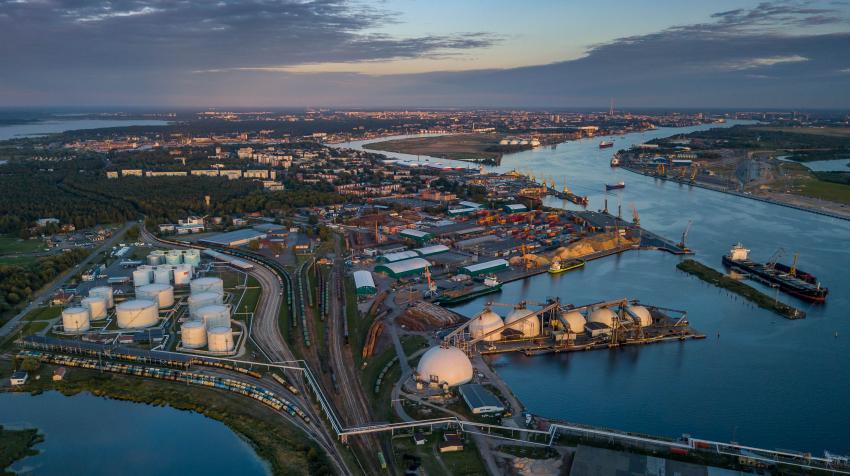
Riga to Become a Hub for Renewable Fuel Production for the Baltic Market
4 months ago
Riga to Become a Hub for Renewable Fuel Production for the Baltic Market

The Port of Riga is poised to host the Baltic region’s first large-scale facility for renewable fuel production, specializing in hydrotreated vegetable oil (HVO) and sustainable aviation fuel (SAF).
This groundbreaking initiative, developed in collaboration with Ukrainian investors, aims to address the surging demand for eco-friendly, high-value fuels in Latvia and across Europe. The project is set to advance climate neutrality goals, bolster Latvia’s export capabilities, and reduce dependence on foreign fuel imports.
On November 26, Latvia’s Minister for Climate and Energy, Kaspars Melnis, visited the Port of Riga to assess the project spearheaded by SIA PARS TERMINALS. During his visit, Melnis reviewed the proposed facility site in Kundziņsala and examined other renewable energy projects in development at the port.
“Establishing a long-term renewable fuel production facility at the Freeport of Riga is a visionary step towards enhancing Latvia’s role as a leader in sustainable energy production in the Baltics. This initiative not only strengthens energy independence but also creates 120 highly skilled jobs, secures consistent demand for local energy crops, and drives progress toward climate neutrality,” said Melnis.
The facility will utilize innovative technologies to produce environmentally friendly fuels from natural vegetable oils. With a feedstock capacity of approximately 236,000 tonnes annually, the plant will generate 93,000 tonnes of HVO and 87,000 tonnes of SAF. The total investment, estimated at $126 million, is expected to deliver a state-of-the-art facility within 20 months, facilitated by the availability of necessary equipment and technology.
This project marks a significant step in Latvia’s journey towards energy independence, supporting local production, fostering economic growth, and strengthening ties with Ukrainian partners amid ongoing geopolitical challenges. It also positions Latvia as a competitive player in the burgeoning biofuels market, including aviation.
During the minister’s visit, additional green energy initiatives at the Port of Riga were discussed. These include plans to produce wind turbine components, develop logistics infrastructure in Kundziņsala, and construct one of the region’s largest solar panel parks in Spilve Meadows, which will generate 100,000 MWh of green electricity annually. The port is also participating in the “BalticSeaH2 – Baltic-Nordic Hydrogen Valley” research project to explore hydrogen energy solutions.
Further sustainability efforts highlighted include the implementation of shore power connections for vessels and the modernization of the Freeport of Riga Authority’s technical fleet, underscoring the port’s commitment to climate neutrality and its role as a hub for renewable energy innovation.
Source: Container News